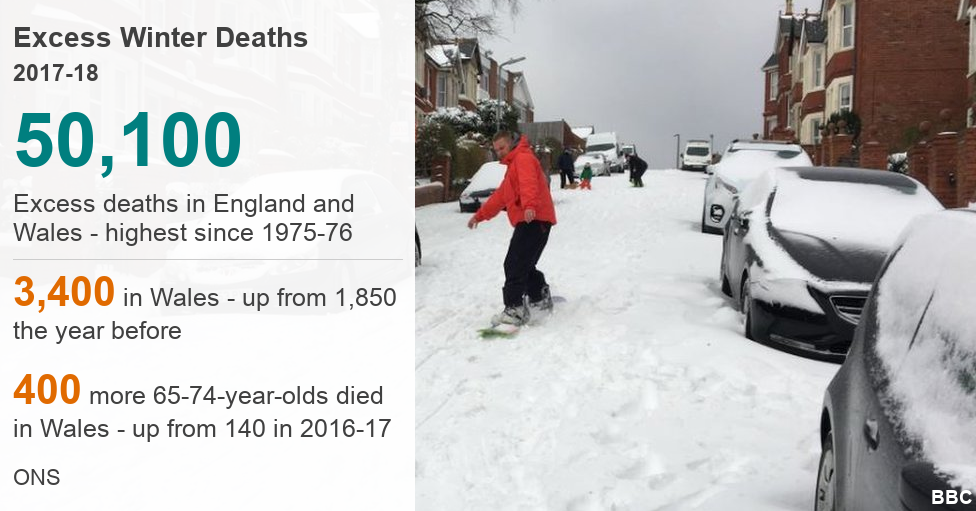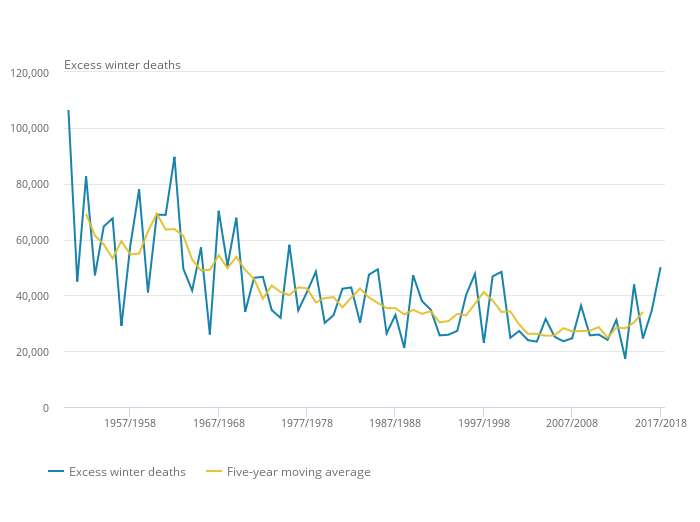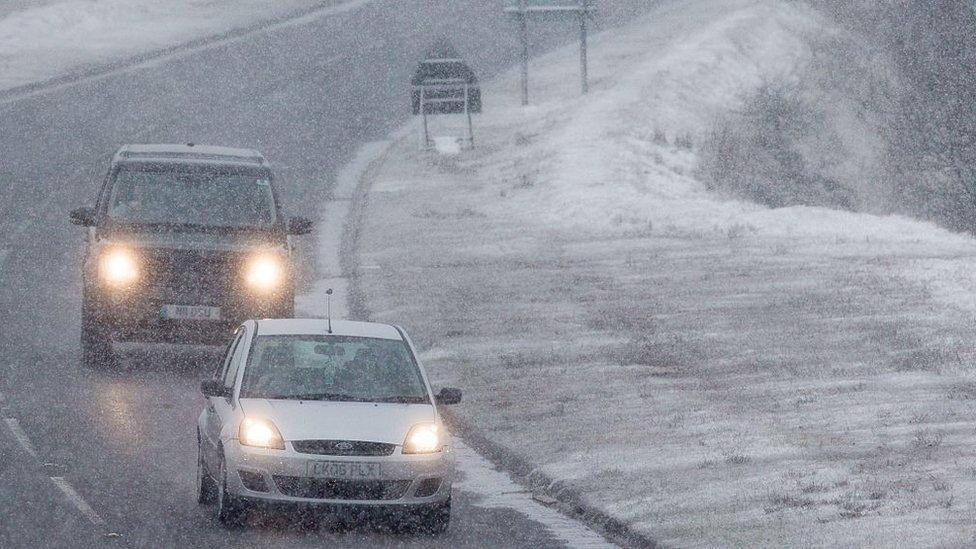Excess winter deaths almost double in Wales
- Published

Storm Emma brought arctic conditions to Wales at the start of March - and a spike in winter deaths
Excess winter deaths in Wales almost doubled in 2017-18 - rising from 1,850 the year before to 3,400.
Public health experts said adverse weather and influenza were to blame for the increase, hitting older people in particular.
Experts said it was the highest number of excess deaths since the winter of 1975.
But officials said spikes in winter deaths were not uncommon - with eight peaks over the past 40 years.
Across England and Wales, there were 50,100 excess deaths last winter.
However, this is half the number of excess deaths recorded in the winter of 1950 - when there were 106,400 extra winter deaths.
The latest figures, external describe the difference between the number of people who died in the four winter months of 2017-18 compared with the number of deaths that occurred across the summer season in 2018.
According to the Office for National Statistics (ONS), Powys was the county with the largest increase in excess deaths in Wales for last winter - while Anglesey saw the biggest drop.
The over-85s experienced the highest level of deaths.
However, it was the 65-to-74-year-old age group that saw the largest relative increase in mortality rates - with 400 excess deaths last winter, up from 140 the year before.

Dr Simon Cottrell, for Public Health Wales, said two variants of the influenza virus in Wales - influenza A and B - played a role in the death rates.
"Both of these viruses can cause higher rates of infection and complications in older adults and the elderly, and influenza A (H3N2) in particular has been associated with higher numbers of deaths in previous winters," he said.

Excess winter deaths and five-year moving average: England and Wales 1950-2018

The ONS said more than a third of the excess deaths had been caused by respiratory diseases.
A second spike in deaths in March reflected the severe cold spell as Storm Emma brought arctic conditions to Wales.
"These factors help explain the high levels of mortality seen in Wales during the 2017-18 winter compared to recent winters," added Dr Cottrell.
- Published1 March 2018

- Published2 March 2018

- Published11 January 2018

- Published17 January 2018
